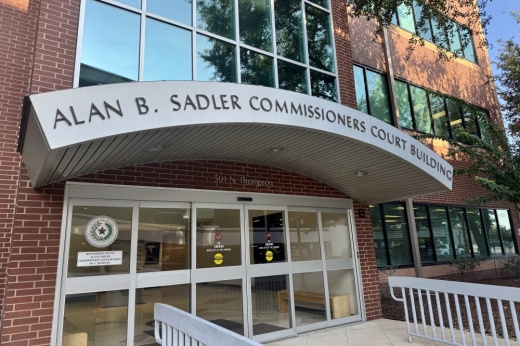In a nutshell
Roadside vendor and solicitor regulations took effect in Montgomery County after commissioners voted Aug. 26 to adopt an ordinance regulating roadside vendors and solicitors in unincorporated areas of the county. The new rules followed the passage of House Bill 2012 in the Texas Legislature, which allows counties to enforce regulations against roadside vendors.
Another bill—House Bill 2844—requires all permits and food truck inspections to be performed by the state health department, instead of individual counties or cities, as previously reported by Community Impact. Additionally, food trucks are no longer required to operate out of a central location, commonly seen as a commercial kitchen.
“We believe both HB 2844 and HB 2012 advance [the chamber’s] vision—particularly HB 2012, given its potential to enhance the look, feel, and safety of our community,” said Mark Linabury, president and CEO of the Greater East Montgomery County Chamber, via email Sept. 26. “As the voice of business, we also see these measures as protecting companies that already follow the rules while making our region more attractive for new investment.”
Zooming in
The countywide ordinance bans the solicitation of money as well as the sale or distribution of food and merchandise on public highways, roads or rights of way. It also prohibits vendors from placing or maintaining structures in those areas, per the ordinance.
Montgomery County Precinct 4 Commissioner Matt Gray championed the ordinance with court discussion beginning in March and continuing into June, as previously reported. Gray wanted to give law enforcement the tools needed to prevent unsafe situations along roadways, Precinct 4 Chief of Staff Josh Pascua said via email Sept. 24.
“Law enforcement is now able to stop panhandlers that harass drivers and cause dangerous situations at our intersections,” Pacsua said. “The Roadside Vendor Ordinance also helps us stop the puppy mills and other inhumane and unsanitary sale of live animals along the roadway.”
Stay tuned
For HB 2844, a lot of the impact is still uncertain because logistics were not baked into the bill, said Scott Nichols, director of Montgomery County's Environmental Health Services department, via email Oct. 2. Guidelines are slated to be released in May 2026, he added.
“The state health department was not prepared and [is] still not prepared to take this on,” Nichols said. “I continue to have conversations regarding the logistics for this.”
Montgomery County has about 400 food trucks operating annually, Nichols said.






